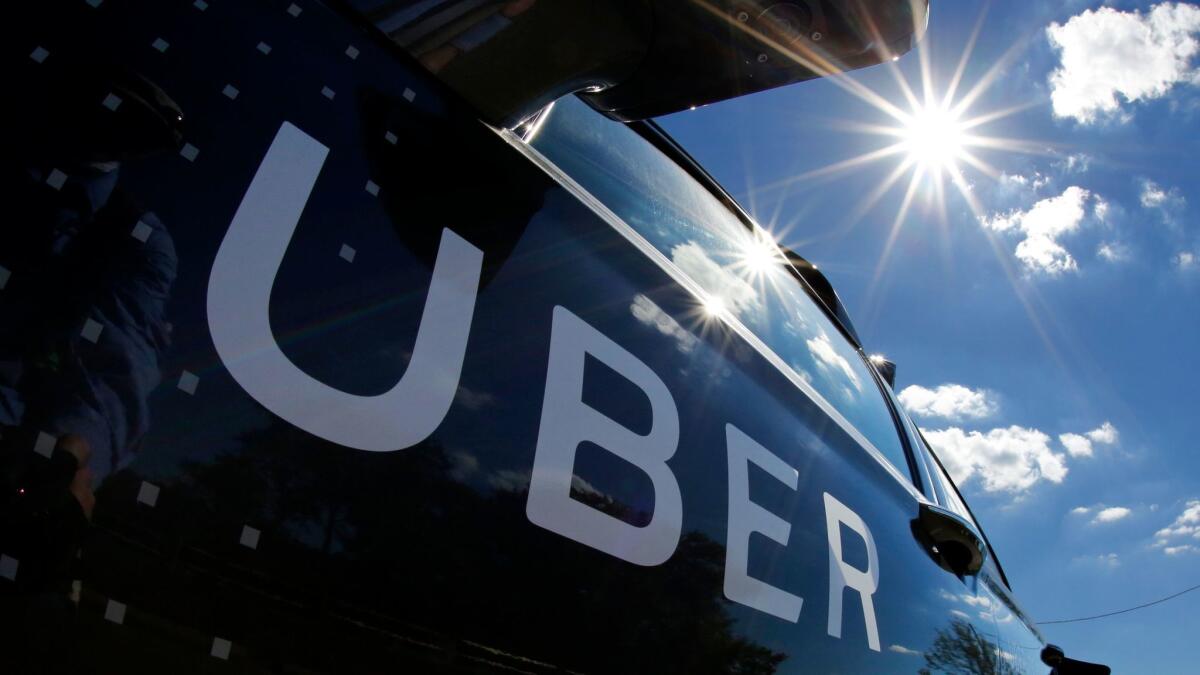Judge refers theft allegations by Google’s self-driving car unit against Uber to U.S. Attorney’s office

DETROIT — A federal judge has referred trade secret theft allegations made against Uber by Google’s autonomous car unit to the U.S. Attorney’s office for investigation.
District Judge William Alsup in San Francisco made the referral in an order posted Thursday night.
Waymo has sued Uber alleging that the ride-hailing company is using stolen Waymo technology to develop its own self-driving vehicles. Alsup is presiding over the lawsuit.
“This case is referred to the United States Attorney for investigation of possible theft of trade secrets based on the evidentiary record supplied thus far concerning plaintiff Waymo LLC’s claims for trade secret misappropriation,” Alsup wrote in the order. “The court takes no position on whether a prosecution is or is not warranted, a decision entirely up to the United States Attorney.”
Neither Uber nor Waymo would comment specifically on the judge’s referral Thursday night.
The high-stakes corporate espionage case revolves around Waymo’s allegations that Uber’s work on self-driving cars has been riding on trade secrets stolen by a former Google engineer, Anthony Levandowski.
Waymo contends that before leaving Google early last year, Levandowski downloaded 14,000 documents containing details about a navigational tool called Lidar that robotic cars need to see what’s around them.
Waymo has alleged in its lawsuit that Levandowski and Uber conspired to create a sham self-driving truck startup called Otto as a prelude to a $680 million deal for Uber to buy Otto and get the desperately needed technology.
After Uber bought Otto, Levandowski took over oversight of Uber’s self-driving car division. He stepped down from the role earlier this month until Waymo’s lawsuit is resolved.
Uber has vehemently denied using Waymo’s ideas, maintaining that its Lidar system is radically different. Meanwhile, Levandowski has refused to turn over his personal laptop or answer most other questions posed by Waymo’s lawyers while asserting his 5th Amendment right against self-incrimination.
Also Thursday, Alsup issued a ruling on Waymo’s request for an order to stop Uber’s work on autonomous vehicles while the lawsuit is decided, but the ruling was temporarily sealed because it contained confidential information. A case synopsis said the judge granted part of Waymo’s request but also denied part.
In addition, Alsup denied Uber’s request to force the high-tech corporate espionage lawsuit out of court and into arbitration. Alsup ruled that Waymo has taken Levandowski to arbitration, and a separate lawsuit was the only course available to sue Uber.
In a statement, Waymo, part of Alphabet Inc., called Uber’s arbitration request a “desperate bid” to avoid the court. “We welcome the court’s decision today, and we look forward to holding Uber responsible in court for its misconduct,” the statement said.
But Uber said it’s unfortunate that Waymo can avoid an arbitration promise that it requires employees to make. “We remain confident in our case and welcome the chance to talk about our independently developed technology in any forum.”
ALSO
Ring modernized the doorbell, then its inventor, Jamie Siminoff, went to war against crime
Consumer prices rebound 0.2% in April
Uber’s head of aviation talks about its plan for air transport. (Just don’t call it a flying car.)






